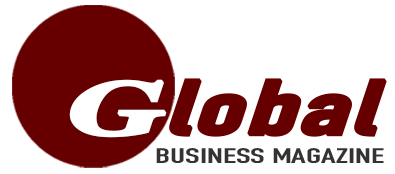This report is from today’s CNBC Daily Open, our international markets newsletter. CNBC Daily Open brings investors up to speed on everything they need to know, no matter where they are. Like what you see? You can subscribe here.
What you need to know today
Stocks advance
Wall Street rose as minutes from the Federal Reserve meeting and revision to payrolls raised hopes of a rate cut. The S&P 500 edged up 0.42% and is within 1% of its all-time record close. The Nasdaq Composite advanced 0.57%. Both the indexes notched their ninth positive day of 10. The Dow Jones Industrial Average rose 55.52 points. Meanwhile, the yield on the 10-year Treasury fell, while U.S. oil prices dropped 1.7% to below $72 a barrel.
Fed rate cut imminent?
The Federal Reserve officials at their July meeting moved closer to an anticipated interest rate cut, indicating that a September reduction was quite probable. “The vast majority” of members “observed that, if the data continued to come in about as expected, it would likely be appropriate to ease policy at the next meeting,” the summary of the minutes from the Fed’s last meeting showed. Markets are fully pricing in a September rate cut. Some officials were inclined to start easing at the July meeting rather than waiting until September, citing progress on inflation and the unemployment rate. Separately, nonfarm payroll growth was revised down by 818,000, making a case for rate cuts.
Ford EV shift
Ford Motor is postponing production of a next-generation electric pickup truck and canceling plans for a three-row electric SUV, instead prioritizing hybrid models. The move will result in a $400 million charge and up to $1.5 billion in additional expenses. Ford will lower its EV capital expenditure from 40% to 30% as it responds to slower-than-expected EV adoption and profitability challenges.
China hits out
China criticized the European Union’s tariffs on electric vehicle imports after the bloc lowered duties on several automakers. China’s Ministry of Commerce accused the EU of reaching “pre-set conclusions” in its subsidy investigation and promoting unfair competition. “China will take all necessary measures to resolutely defend the legitimate rights and interests of Chinese companies,” a commerce ministry spokesperson said, according to a Google translation. The EU lowered tariffs for Tesla, BYD, Geely, and SAIC.
Microsoft Recall
Microsoft plans to introduce its controversial Recall AI search feature for Windows users to test in October. Recall captures screenshots of on-screen activity, raising security concerns about potential exposure of personal information to hackers. While the feature will be disabled by default and Microsoft has committed to enhancing security, the company has not provided a timeline for a wider release of Windows featuring Recal.
[PRO] Crypto to data
Morgan Stanley sees potential for crypto miners to boost profits by converting their facilities into data centers, citing significant upside potential. Here are the miners that could possibly benefit.
The bottom line
Ford‘s decision to slow the pace of its electric vehicle expansion and shift to hybrid technology probably shouldn’t come as a surprise. Consumers aren’t particularly enamored by the prospect of paying premium prices for vehicles with limited range, whose value plummets drastically compared to combustion engine vehicles.
Amid EV hurdles, the road to net zero emissions by 2050 seems full of potholes. While Ford isn’t alone, OPEC and the International Energy Agency are at odds over when peak oil demand will materialise. The IEA, advisor to rich industrialised nations, brought its prediction forward to 2029. OPEC, on the other hand, doesn’t see a peak in oil demand in its long-term forecast.
OPEC projects that demand will rise to 116 million barrels per day by 2045, while the IEA predicts a peak at 105.6 million barrels within the next five years. OPEC Secretary General Haitham Al Ghais criticized the IEA’s report as “dangerous commentary,” warning that it could lead to unprecedented energy market volatility, particularly for consumers.
Amid stretched forecasts and slack EV take-up, Aramco, the Saudi oil giant, bought a 10% stake in engine manufacturer Horse Powertrains, a partnership between France’s Renault and China’s Geely. The joint venture anticipates that half of the vehicles on the road by 2040 will still be powered by combustion engines.
With Horse Powertrains car manufacturers can stop producing their own engines and instead source them from the company. Horse CEO Matias Giannini told the Financial Times, “If you are a car company today and you are focusing 100% on EVs and all of a sudden you realize that in one region your customers want a hybrid vehicle, you could partner with Horse Powertrains.”
Saudi Arabia, however, does not want to miss out on EVs, and is also investing in pure electric ventures, such as Lucid Group, which recently received a much-needed $1.5 billion investment. Additionally, the country is developing its own EV brand, Ceer, in collaboration with Foxconn.
Ford’s decision to slow its EV expansion was well-received by investors, boosting the stock by 1.6%. As for the broader market, it shook off earlier losses and rose after Fed’s minutes from their July meeting signaled a possible rate cut.
With the nonfarm payroll data revised sharply lower, LPL Financial chief economist Jeffery Raoch suggests the Fed may opt for a larger interest rate cut in September.
“A deteriorating labor market will allow the Fed to highlight both sides of the dual mandate and investors should expect the Fed to prepare markets for a cut at the September meeting,” Roach said. “A weaker-than-expected job market could pave the way for the Fed to cut by a half percentage point in September.”
— CNBC’s Jeff Cox, Alex Harring, Samantha Subin, Pia Singh, Jordan Novet, Michael Wayland, Melissa Repko and Spencer Kimball contributed to this report.
By CNBC

